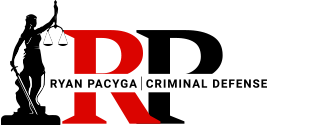Minnesota has severe punishments waiting in store for anyone charged with driving while intoxicated (DWI). On top of fines and jail time, convicted drivers also face potential license suspensions – even if they’ve just been convicted of their first DWI offense.
But there’s more to a DWI charge than just fines, prison sentences, and license revocations. Depending on certain factors, a Minnesota law enforcement officer may also impound a convicted driver’s license plate.
How does license plate impoundment happen, and what can you expect if it happens to you?
Impoundment based on aggravating factors
License plate impoundments will apply in DWI cases involving certain aggravating factors during the driver’s arrest. These factors include:
- The driver was charged with DWI within ten years of a prior impaired driving violation.
- The driver had a blood alcohol concentration (BAC) level of .16% or more.
- A child under 16 was a passenger in the driver’s vehicle at the time of arrest.
- Th driver has a canceled license due to a prior conviction.
When an officer calls for a plate impoundment, it affects the current vehicle of the charged driver and other automobiles owned and registered under the driver’s name. The officer will seize the plates and issue the driver a temporary vehicle permit valid for seven days. If the violator is not the vehicle’s owner, the officer will give them a permit good for 45 days.
What follows after plate impoundment?
The minimum term for plate impoundment is one year. It’s a crime for a driver with impounded plates to evade the punishment or for another person to enable the deception.
DWI-convicted drivers may be issued specially coded “whiskey plates” if they have been adequately relicensed, have a properly licensed substitute driver or the actual owner of the vehicle with impounded plates is not the violator. Convicted drivers are also prohibited from driving unless the vehicle displays these special plates.
Thanks to new rules in 2021, DWI-convicted drivers that enter the ignition interlock program may be able to obtain new license plates that aren’t specially coded.
Like a DWI charge, a driver can appeal a license plate impoundment. For a better chance to appeal the sanction, drivers can hire a lawyer to help them defend their case and reduce the penalty.

